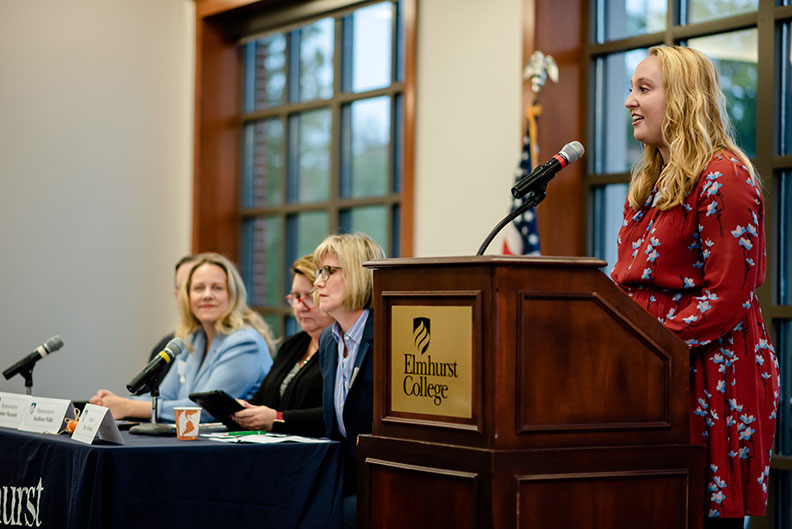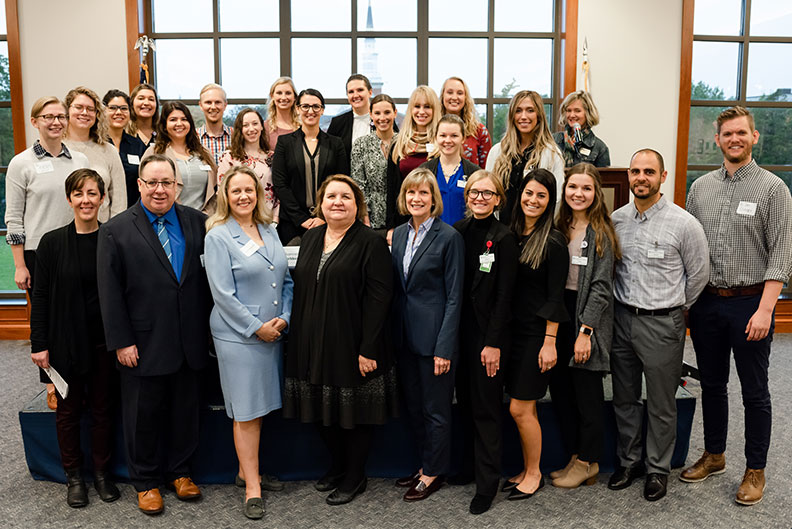
Vaping, the opioid crisis and a statewide nursing shortage were among the topics discussed by a panel of state lawmakers during a breakfast held on campus last month as part of a graduate nursing course on health care policy and finance.
Nursing students in the Master’s Entry in Nursing Practice program hosted the health care legislative breakfast and panel discussion on Oct. 21. The panel included three state legislators— State Rep. Deanne Mazzochi (R-Elmhurst), State Sen. Suzy Glowiak (D-Western Springs) and State Rep. Kathleen Willis (D-Northlake)—and Dennis Brennan, legislative manager for the DuPage County Health Department.
The panel members discussed current legislation and initiatives related to health care. When asked about what initiatives were underway to address the opioid crisis, Willis noted that the problem “is not a Chicago problem, and we need more facilities in the suburbs to cope with it.”
“We need to up our game and get rid of the stigma,” she added, “and we need our physicians to be more accountable.”
Glowiak said the Illinois Senate recently had created a public awareness program about the opioid crisis and also was considering a bill to increase the penalty for the illegal sale of fentanyl. “We are trying to come up with some strategies, but it is going to take a comprehensive strategy to solve this,” she said.
The purpose of the legislative breakfast was to enable the students to demonstrate clinical leadership, and to advocate for their populations and the discipline of nursing, said Elizabeth Davis, assistant professor of nursing and health sciences.
“It is imperative that practicing nurses are aware of their responsibility to their profession and the populations they work with,” said Davis, who also is director of the Master’s Entry in Nursing Practice program. Graduate nursing faculty and students attended the breakfast, which Davis hopes will become an annual event.

Mazzochi thanked the nursing students for hosting the event, noting the important role they can play in making legislators and policymakers aware of needs in the community that might require new rules and laws.
“Nurses are the core members providing medical care,” she said. “You are the eyes and ears who can be among the first to detect when something’s going wrong.” Informed lawmakers then are able to respond, she said: “We can determine what tools we can put into the laws to make sure first-responders and, ultimately, patients, are getting the help they need.”